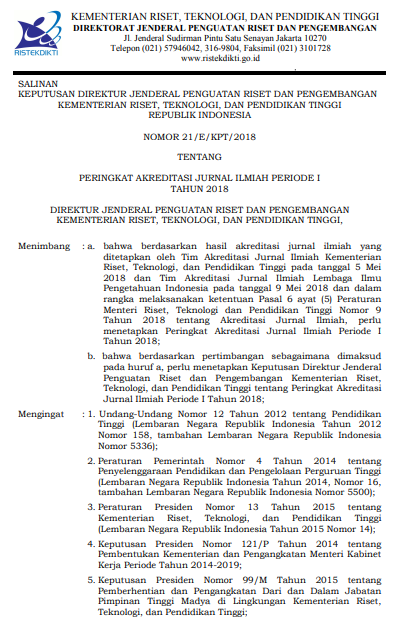INTERNATIONAL POLITICAL LAW STUDIES OF KYOTO PROTOCOL 1997 ABOUT GLOBAL WARNING
Abstract
Global warming or Global Warming that occurs is not currently an issue which can be resolved quickly. Need awareness together to solve this problem, because the impact is felt all over the world. Developed countries must be responsible in emission reduction as a form of spirit of shared responsibility and vary, although developing countries will also do the same. This research used the juridical normative approach, with secondary data composed of materials of primary legal materials either law, secondary law materials and materials law tertier as a source of law. Legal political activity is to specify an option regarding objectives and how to be used to achieve the objectives of the law in the community. With regard to the Kyoto Protocol of 1997, the ways of achievement of that goal was left to each country, so that it can be set up in accordance with the conditions of the country concerned. The States parties have not yet fully accept the Kyoto Protocol of 1997 so that the target of emission decline/QELROs listed in article 3 has not been fully achieved.
Key Word: global warming, legally binding, law politics international
Full Text:
PDF View
DOI: http://dx.doi.org/10.20884/1.jdh.2015.15.2.348
Refbacks
- There are currently no refbacks.
JURNAL DINAMIKA HUKUM Indexed by :
 | Jurnal Dinamika Hukum | |
| Faculty of Law, Universitas Jenderal Soedirman | Copyright of Jurnal Dinamika Hukum | |
| Yustisia IV Building, Law Journal Center | ISSN 2407-6562 (Online) ISSN 1410-0797 (Print) | |
| Purwokerto, Central Java, Indonesia, 53122 | JDH is licensed under a Creative Commons Attribution 4.0 International License | |






